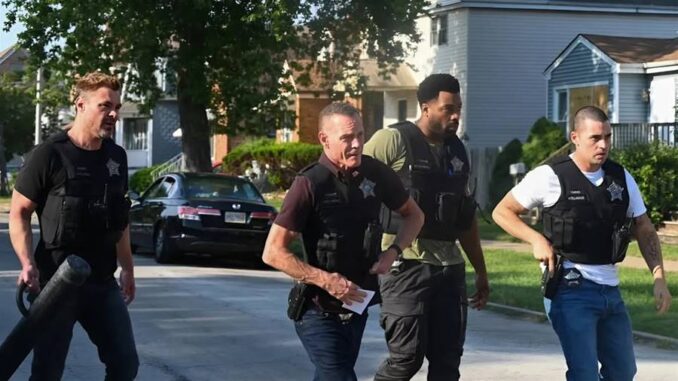
Hank Voight, portrayed by veteran actor Jason Beghe, is one of the most compelling and multi-dimensional characters in Chicago P.D.. As the head of the Intelligence Unit, Voight commands respect and fear in equal measure. His no-nonsense attitude, ironclad loyalty to his squad, and willingness to cross moral and legal lines for what he believes is justice have made him both a fan favorite and one of television’s most complex antiheroes.
From the show’s earliest days, Voight has stood out as a leader unlike any other. He is fiercely protective of his team, treating them like family, yet demanding absolute loyalty in return. His leadership style, often uncompromising and harsh, stems from his deep belief in protecting the people of Chicago—even if it means bending the rules. For Voight, the ends almost always justify the means, a philosophy that has sparked as much debate among viewers as it has admiration.
What makes Voight particularly fascinating is his moral code. He is not corrupt for personal gain; rather, he operates in the gray areas of justice, taking actions that the legal system might frown upon but that his instincts—and his sense of street justice—tell him are necessary. Whether it’s intimidating suspects, leveraging criminals for information, or shielding his team from political fallout, Voight consistently proves that his definition of justice is both unorthodox and unwavering.
Over the years, Chicago P.D. has peeled back layers of Voight’s persona, revealing the personal tragedies and losses that fuel his fire. The murder of his son, Justin, left an indelible mark on him, shaping his relentless pursuit of justice and intensifying his protective instincts toward his squad. These vulnerabilities, shown sparingly but powerfully, humanize a character who could otherwise be seen solely as a hard-edged enforcer.
Jason Beghe’s gravelly voice and commanding screen presence bring Voight to life in a way few actors could. Beghe infuses the role with authenticity, capturing both the toughness and the underlying pain that define Voight. His performance anchors the series, giving it emotional weight and a gritty realism that resonates with fans season after season.
As Chicago P.D. continues into its later seasons, Voight remains the moral center of the show—even if his morality doesn’t always align with conventional standards. He embodies the contradictions of law enforcement: protector and enforcer, father figure and tormentor, hero and antihero. It is this duality that keeps audiences invested, sparking conversations about justice, loyalty, and the blurred lines between right and wrong.
In the landscape of modern television, few characters are as layered and enduring as Hank Voight. He is a man forged by tragedy, defined by loyalty, and feared for his methods—but admired for his results. And as long as Jason Beghe continues to breathe life into him, Voight will remain the relentless heart of Chicago P.D..
